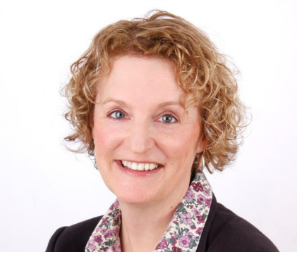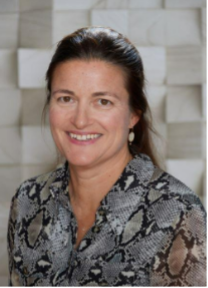Data-Driven Student Voice can Transform Curriculum
Data-Driven Student Voice can Transform Curriculum
Dr Martha Ross and Susie March
This research snapshot shows the potential of the “student voice” to guide schools towards developing a curriculum that better responds to young peoples’ needs and can prevent future harm to themselves and others.
Through a study by Susie March Consulting (“Using Student Voice Data to drive CSE in International School contexts” – 2024), schools and educators can be usefully informed about how to connect student feedback with Comprehensive Sexuality Education (CSE) concepts. Using their own Student Voice data, schools can push topics back into the school’s CSE related curriculum and create invaluable life-long learning for students and their ongoing safety.
Comprehensive Sexuality Education is defined by UNESCO as;
“Comprehensive sexuality education (CSE) is a curriculum-based process of teaching and learning about the cognitive, emotional, physical and social aspects of sexuality, (UNESCO Technical Guidance on Sexuality Education, 2018).”
Student Voice data can encourage schools to take responsibility for inclusive safeguarding and relevant learning opportunities for all students. A recent UNESCO report, entitled “Safe, seen and included” (2023), states that global evidence shows a major gap between CSE policy and implementation, (UNESCO et al., 2021). The UNESCO paper cites the Yogyakarta Principles YP+10 (2017),
“States shall ensure inclusion of comprehensive, affirmative and accurate material on sexual, biological, physical and psychological diversity, and the human rights of people of diverse sexual orientations, gender identities, gender expressions and sex characteristics, in curricula, taking into consideration the evolving capacity of the child, (2023).”
The evolving capacity of the child is a vital lens for CSE topics in schools. Increasing capacity in line with maturity and personal development in the digital era can be significantly different for students than it was for their parents and educators. This disparity of experiences could create a safeguarding gap in current practice.
With the evolving awareness of post-digital harm, what can be done to support students’ online activities without trained adults to guide them?
Student Voice data collection
The research, conducted by Susie March Consulting in 32 schools to date, uses a Diamond-9 activity that asks students, working in small groups, to select nine topic tiles from a set of 45. Students rank the topics, based on their relevance to themselves, as young people.
The tiles are statement-based and connected with the key concepts within the UNESCO Technical Guidance on Sexuality Education.
The eight key concepts from the UNESCO Technical Guidance on Sexuality Education, (2018).
- Relationships
- Values, Rights, Culture and Sexuality
- Understanding Gender
- Violence and Staying Safe
- Skills for Health and Well-being
- The Human Body and Development
- Sexuality and Sexual Behavior
- Sexual and Reproductive Health
Student output is captured and used to generate meaningful data about the student’s desired learning priorities. The data can be pivoted by school grade, declared gender, topic tile statement or key concept. Research notes include students’ verbal reflections – for example identity-based harm, the impact of peer interactions online or how middle school students are highly vulnerable without guidance.
Figures 1 and 2: Photo records of individual diamond-9 selections: Click here to see graphic
The contextual setting for the research has been agreed with the students and schools. All identities and data remain anonymous and permission from the schools to use the data and feedback has been obtained.
Table 1: Summary of participation: Click here to see graphic
Reflection on outcomes
Students in version one of the research have consistently highlighted topic tiles “Consent and Boundaries”, “Sexually transmitted infections” and “Sexual Harassment”. For schools and educators, this can inform their teams on the impact of these topics, of post-digital harm and the potential loss of learning when students are distracted in their personal lives and relationships.
Figure 3: Slide show ranking: Click here to see graphic
The impact on all students
Professional Development, provided by the IB, on Inclusion, entitled, Principles of Inclusive and Equitable Education – states that;
“Inclusive education is enhanced by the creation of affirmative, responsive environments that promote a sense of belonging, safety, self-worth and whole growth for every student, (2024).”
The data in this study indicates that the evolving capacity – and needs – of students can be reflected by Student Voice results. When schools are informed about the relevant topics in Comprehensive Sexuality Education, curriculum overload can be reduced by refining the learning to specific subjects.
The “Safe, seen and included” (2023, pg 50), document highlights the benefits of including young people in the discussion – through mechanisms like Student Voice. The document recommends using a conceptual framework to identify priorities for action, asking students to question,
What information and support do I need to feel safe, both physically and emotionally?
What information and support do I need to feel seen, with the realities of my life reflected in the curriculum and school environment?
What information and support do I need to feel included as a full and equal part of the school community?
Questions for schools
Are there processes in place to capture the topics students want to learn about in your school?
Is there a safeguarding gap created by the disparity of post-digital experiences between educators and young people?
Where online harm has occurred, who can students turn to?
Is there support for students experiencing post-digital harm?
Do we know how to assess for harm and prevent psychological impact?
How can understanding between generations regarding online behaviour and harm be understood to support students, parents, carers and educators?
Find out more
Susie March and Martha Ross will share this data at the ECIS Leadership Conference in April where they will be addressing the mission of a school, and how this mission can be a powerful tool in generating awareness of CSE topics.
References
March, S. March, R. (2024) Using Student Voice Data to drive CSE in International School contexts. Research project.
March, S, Ross, M. (2023) Comprehensive Sexuality Education through an Inclusion Lens. Webinar for ECIS Inclusion SIG, (Special Interest Group).
IBO, Principles of Inclusive and Equitable Education. Nano PD. https://shorturl.at/hzDHN. Accessed March 2024.
UNESCO, (2023), Safe, seen and Included. https://shorturl.at/gKWY5 Accessed March 2024.
UNESCO, (2017) Technical Guidance on Sexuality Education. https://shorturl.at/AINU1. Accessed March 2024.
About the authors

Susie March is a Sexuality Educator supporting international schools in their development and implementation of CSE. She works with school leaders in policy development, curriculum planning, implementation and staff professional development. Her holistic and developmentally appropriate approach to CSE is specific to international schools, and the unique cultures within which they operate. Susie is a regular speaker and facilitator at educational conferences hosted by organisations such as CIS, ECIS, AAIE, ISCA, ISS and 21stCL.

Dr Martha Ross is an Inclusion Coordinator at International School Carinthia, Austria. She recently decided to refocus her career in the direction of Inclusion and Safeguarding after seven years in Senior Leadership. Martha is motivated towards the positive identification of all students in an International School Setting. During her post graduate studies, Martha focused her research on Inclusion and Intercultural Competencies.
You might also like...
Leading through Complexity: Why Wellbeing Intelligence is The Bedrock of Sustainable Success
30th April 2025
The sea belongs to me again: Steering my disabled body through an able-bodied world
4th November 2023
Nurturing Student Agency in Secondary Mathematics: Challenges and Opportunities
17th June 2024
Beyond the Tool: Why AI in Education Is About the Learner, Not the Technology
4th June 2025
Storytelling as a way of mapping student learning
9th July 2024
